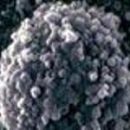Cytomegalovirus - a disease caused by the virus of the herpes family, capable of proceeding asymptomatic or affect the internal organs and the central nervous system.
Content
Cytomegalovirus
Cytomegalovirus Cytomegalovirus Hominis is the causative agent, which, falling into the body once, remains there forever.
Cytomegalovirus infection that is capable of living only in the human body contributes to an increase in the size of normal host cells. Finding into the body, the virus leads to immune restructuring in the body. In order for symptoms of the disease, t.E. There was a transition from latent form to clinically pronounced form, provoking factors are needed: receiving cytostatics or immunosuppressants, intercurrent diseases, HIV infection.
Methods of transmission of the virus

Considering that the virus can be in the blood, seed fluid, the secreet of the cervix, saliva, urine, milk, infection can occur in the following ways:
- Polov
- Aerial drip
- Transplascentary
- In the process of blood transfusion
- in the process of childbirth
- through the milk of infected mother
If the mother's infection occurred during pregnancy, the probability of the child's infection with cytomegalovirus is quite high. However, the occurrence of pregnancy with the already existing latent infection does not always lead to fetal infection. In such women, fetal infection can occur only with the exacerbation of latent infection with the development of virusemia.
The most frequent form of manifestation of infection - ORZ, with characteristic symptoms characteristic of this disease: high temperature, headache, weakness. Rarely, the virus can cause more serious diseases: pneumonia, arthritis, encephalitis and t.D.
For the treatment of cytomegalovirus, antiviral drugs are used, which suppress infection, although they do not kill it.









